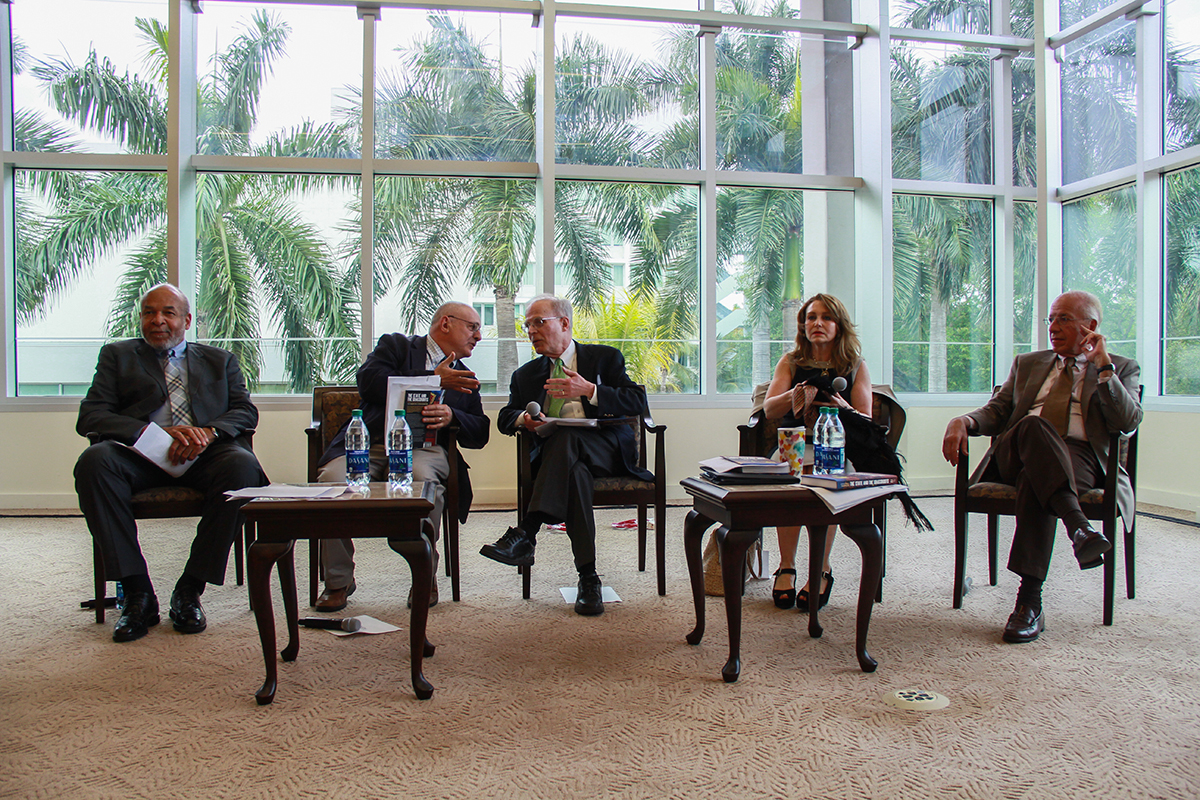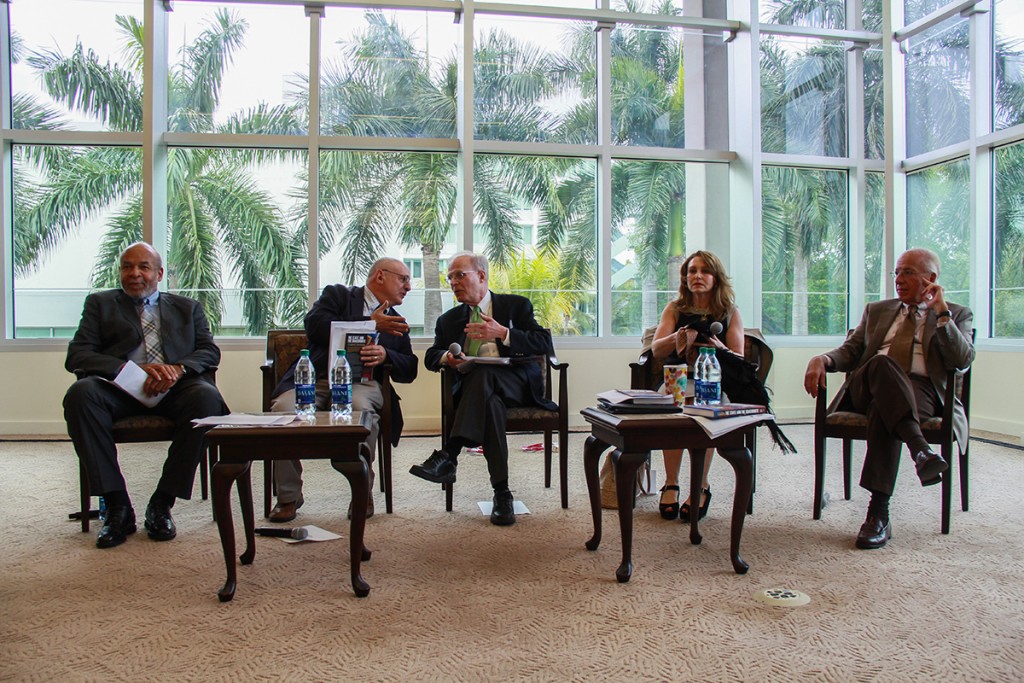

University of Miami sociologist and author Alejandro Portes was joined by several other professors Wednesday afternoon to discuss themes from his new book, “The State and the Grassroots: Immigrant Transnational Organizations in Four Continents.” Portes, law professor David Abraham and director for the Miami Institute for the Americas Felicia Knaul were joined by Jorge Dominguez, the chair of the Harvard University Academy for International and Area Studies.
The talk was the first of a series, according to Knaul, and Portes was an ideal candidate to kick it off, being a UM professor and a recognized scholar in sociology. He was founding director of Princeton’s Center for Migration and Development. “The State and the Grassroots,” which was edited by Portes and Princeton lecturer Patricia Fernandez-Kelly, compares 18 grassroots organizations across the globe and how their infrastructure and activities help enable upward mobility for migrants.
A major point in the book and the discussion was the idea of “circular” migration, when a migrant returns to their homeland with the skills and resources they learned while away and contributes to the society they left. This, Portes said, is the solution to so-called “brain drain,” which occurs when nations with less opportunity lose talented individuals, creating a vacuum of development.
Portes used the examples of China and India to illustrate the benefit of circular migration patterns, as opposed to pressuring immigrants to assimilate to their new home and abandon their respective cultures. The attempt to force immigrants into a new society with no respect for where they came from “tends to backfire,” Portes said.
The discussion was particularly relevant in the larger picture of Miami as an enclave for Cuban immigrants who have assimilated to a degree, but maintained their culture. However, Portes said that due to the 60-year-long chasm between the United States and Cuba, the circular flow of growth and improvement has been cut off. This has never been as evident as in the light of current political disagreements over President Barack Obama’s visit to the island last week.
UM President Julio Frenk was in attendance as well, and he gave closing remarks. He said he was glad to get back to his “roots,” as he earned a doctorate degree in sociology at the University of Michigan. The role of universities in the global conversation about immigration – one that has become especially prominent during this presidential election cycle – is to set the standard for navigating multilayered issues, Frenk said.
“We are the source of that knowledge … We understand the intricacies and provide scholarship and knowledge; we perform a role in not just advancing our own academic endeavors, but we show the world how to deal with complex topics in an enlightened way,” Frenk said.






